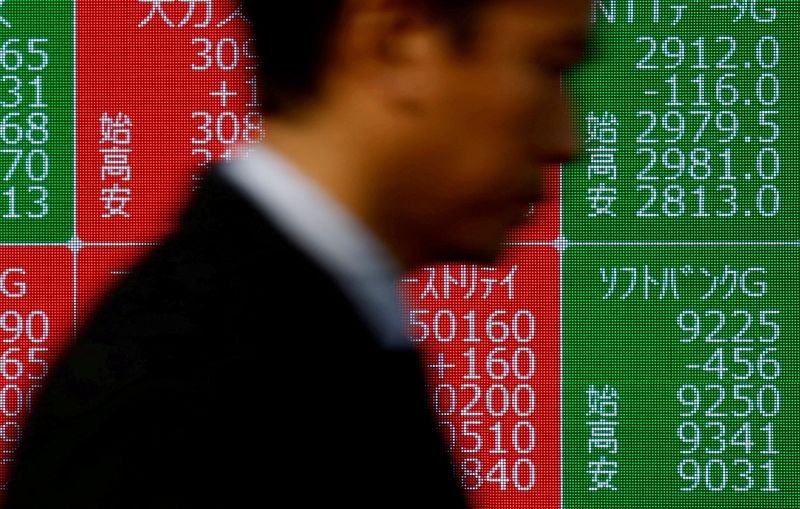US tech and tariff shocks spark scramble for new market havens
Published by Global Banking & Finance Review®
Posted on January 28, 2025
5 min readLast updated: January 27, 2026

Published by Global Banking & Finance Review®
Posted on January 28, 2025
5 min readLast updated: January 27, 2026

US tech stock declines and tariff threats drive investors to safer havens like Japan's yen and European credit, amid market volatility.
By Naomi Rovnick
LONDON (Reuters) -As a tech stock rout and U.S. dollar swings driven by President Donald Trump's tariff threats send markets into a tailspin, investors are piling into assets from Japan's yen to European credit that could act as a buffer to the turbulence.
Markets that cheered Trump's pro-growth agenda have turned bumpy, with oil prices and Canada and Mexico's currencies gyrating, muddled inflation forecasts shaking Treasuries and investors starting to view the new White House as a source of risk.
"There will likely be more volatility in the U.S. dollar and across many other assets," said Amelie Derambure, senior multi-asset manager at Europe's biggest investor Amundi.
She said she had limited her funds' exposure to sudden shifts in the U.S. outlook by investing in inflation-linked bonds that would be insulated from tariff-induced consumer price rises and European corporate debt that may gain on further euro zone rate cuts.
Monday's deep slump in artificial intelligence chipmaker Nvidia, driven by panic over low-cost Chinese competition in AI, has also thrown a fresh curveball at febrile U.S. markets with investors expecting more turmoil ahead.
BUFFER TRADES
Trump kicked off his presidency by leaving markets guessing about when he might impose his heavily trailed import duties, floating a China trade deal, calling for lower oil prices, and rate cuts and urging multinationals to manufacture in the United States.
That has already driven a rush into assets that investors perceive are less sensitive to U.S. policy uncertainty and AI anxiety.
Since the Nov. 5 U.S. election, U.S. inflation index-linked bonds have returned roughly 1.5%, while an index of U.S. Treasuries is down around 0.4%.
Japan's yen hit its highest in more than five weeks against the dollar on Monday, after the Bank of Japan last Friday raised interest rates to their highest since the 2008 global financial crisis and revised up its inflation forecasts.
It has firmed over 2% to around 155 per dollar since hitting six-month lows on Jan. 10.
Russell Investments head of currency and fixed income solutions strategy Van Luu said the yen could be a strong buffer against tariff shocks because while all exporter nations' currencies would suffer from trade wars, the euro and Swiss franc were being weakened by rate cuts
"The yen has obviously done really poorly since 2022 so I think the time for a turnaround could be relatively close," he said.
Societe Generale asset allocation head Alain Bokobza said he was recommending clients buy the yen, which has taken the brunt of the dollar's ascent but was now supported by Bank of Japan rate hikes.
He added the yen could also rise if Wall Street ructions prompted Japanese investors to move cash back home.
HUNT FOR COVER
European credit also stood out, investors said.
According to Bank of America, investors have moved money into funds invested in high-quality European corporate credit for 23 consecutive weeks.
Other less fashionable assets might also get a look in as they could be more insulated against rapid policy pivots and market shocks.
Legal & General global equity strategist Robert Griffiths said that in the case of a prolonged U.S. tech slump, assets that had been "disliked and under-owned" during the long Wall Street rally, such as European stocks and the UK's FTSE 100, would do well. The UK asset manager, which runs about $2 trillion of client assets, had also in recent weeks increased its euro holdings in case the dollar drops further.
TwentyFour Asset Management co-head of investment grade Gordon Shannon said the impossibility of predicting Trump's policies had prompted him to favour bonds issued by domestically focused European banks, utilities providers and telecoms groups whose interest payments were reliable.
While Trump's return to the White House has not yet led to tariff hikes, as had been anticipated, uncertainty remains high.
"There's a scenario where Trump just does what he feels like and I can't model the effects of that," said Shannon, adding it was equally possible the new U.S. president delayed tariffs or used them as a negotiating tool.
"You want to be in names that are well covered (by cashflows) and well understood," he said. "European telecoms and utilities are good places to hide."
Amundi's Derambure added that she was staying invested in Wall Street stocks but hedging this exposure with derivatives that would pay out if prices fell.
"It's important to build some resiliency into your portfolio, because we know that there will be ups and downs depending on what the market (decides to) believe the most likely (tariff) scenario is."
"But at the end of the day everything is exposed to some degree and there is no one asset that is completely safe."
(Reporting by Naomi Rovnick; Editing by Dhara Ranasinghe and Alison Williams)
The market volatility is driven by tech stock declines and U.S. dollar fluctuations due to tariff threats from President Trump.
Investors are moving into assets perceived as less sensitive to U.S. policy uncertainty, such as inflation-linked bonds and the Japanese yen.
Experts recommend investing in high-quality European corporate credit and domestic-focused European bonds to mitigate risks from U.S. policy changes.
The Japanese yen has strengthened against the dollar, reaching its highest value in over five weeks, supported by recent interest rate hikes from the Bank of Japan.
Investors should build resiliency into their portfolios by diversifying and hedging their exposure to U.S. stocks, as no asset is completely safe from market fluctuations.
Explore more articles in the Headlines category



